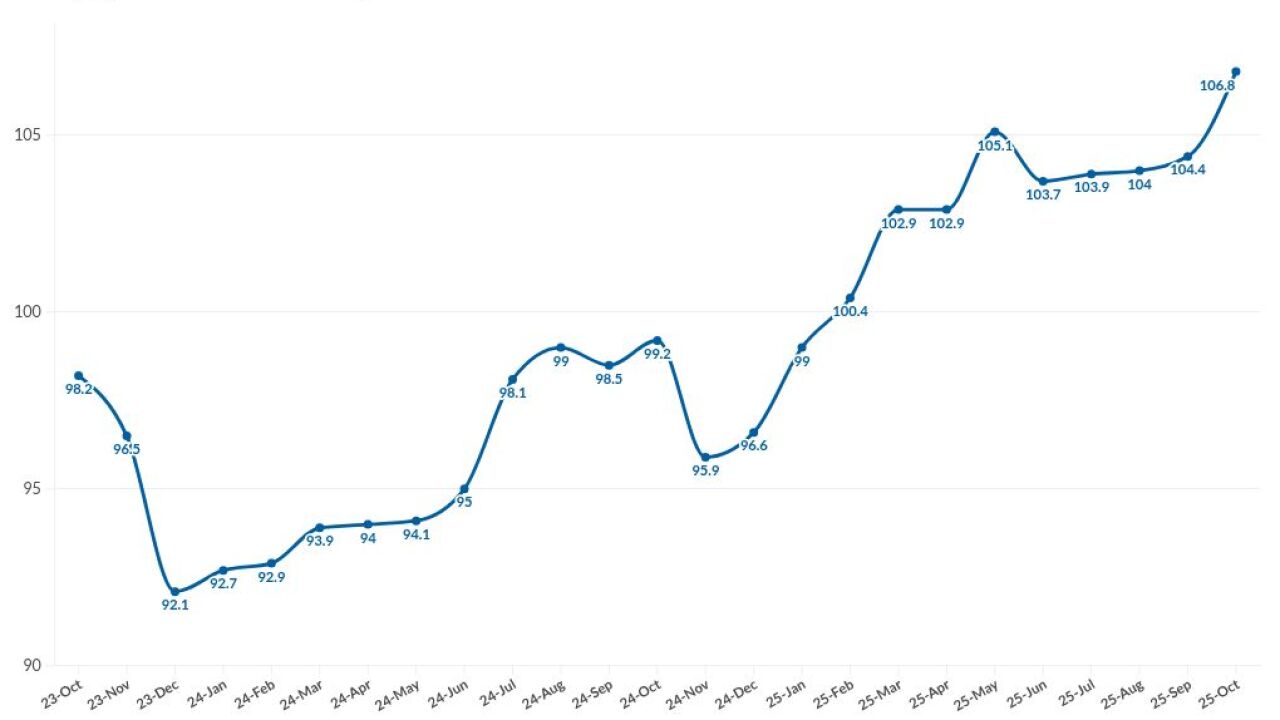Anticipation of the Federal Reserve’s balance-sheet reduction is weighing on bonds backed by mortgages, but the actual event may make them an attractive alternative to corporate debt.
At its May 3-4 meeting, the central bank is forecast to provide a road map for shedding securities it purchased to provide liquidity during the pandemic. A maximum monthly pace of $95 billion is expected, with $35 billion coming from mortgages, after the Fed about doubled its MBS portfolio to around $2.7 trillion the past two years.
Prices on the securities have been weakening since the start of 2022 in acknowledgment of the coming selloff by the Fed, the biggest buyer of mortgage-backed securities. Now money managers see an opportunity to buy the underperforming bonds at even lower prices, with some including strategists at JPMorgan Securities suggesting selling corporate credits to finance the trade.
“On a relative value basis, agency MBS is starting to look attractive compared to corporates,” Tracy Chen, portfolio manager at Brandywine Global Investment, said in an interview. “This might be the first time that the Fed is contemplating actively selling as we only had runoff before.”
Mortgage bonds are trading as cheap as at the height of the pandemic in May 2020, based on the difference between yields on current coupon mortgages and a blend of five- and 10-year Treasuries. The risk premium was 1.16 percentage points on Tuesday, while last year’s average was 0.7 of a percentage point.
The Fed’s policy tightening regime to combat the fastest inflation in decades has helped drive down MBS prices. Quickly rising mortgage rates have led the current production of mortgage securities to be in higher coupons, mainly 4% and 4.5% bonds, according to Morgan Stanley Investment Management.
The average national mortgage rate
But the higher current MBS coupons — which will represent the bulk of future issuance — have wider spreads and shorter durations. And unlike corporate bonds, which are mostly rated A or BBB, mortgage-backed securities have the implicit guarantee of U.S. government entities — essentially no risk of default.
That’s a very compelling trifecta, said Andrew Szczurowski, a portfolio manager at Morgan Stanley Investment Management who specializes in MBS.
“If you’re fearing rising rates, and looking to shorten duration, MBS is one way that you can and also not give up any spread,” Szczurowski said in a phone interview. “Moreover, MBS is a AAA government-agency asset. Only a sliver of investment-grade corporate bonds are AAA, and only a small fraction is AA.”
With virtually no refinancing getting done due to rising mortgage rates, the net supply of securities this year will be far less than originally forecast, “which will be a huge positive technical for the market as the Fed rolls off MBS from their books,” he said.
To be sure, the window for a buy mortgages, sell corporates strategy may be tight. Corporate spreads may widen if credit conditions worsen as the Fed raises interest rates. And not all investors expect continued weakening of MBS prices.
“The most important thing is going to be the pace of the Fed’s quantitative tightening, the timing of MBS sales and who is going to absorb that supply,” Chen said. “It remains to be seen at what levels money managers will step in.”





